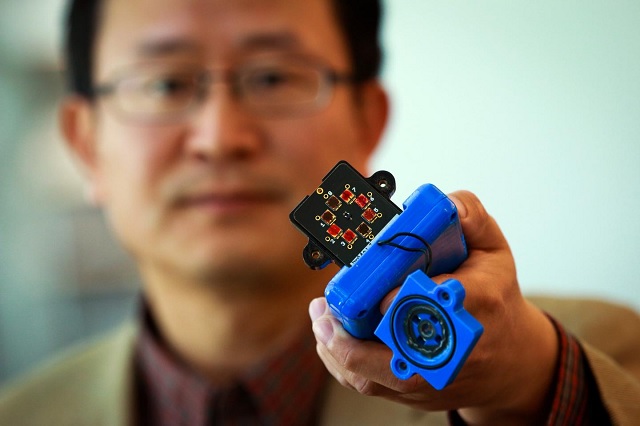 Image Credit: Dan Hixon, University of Utah College of Engineering.
Image Credit: Dan Hixon, University of Utah College of Engineering.
Engineers at the University of Utah have developed a handheld sensor using a new carbon nanotube material which enables the rapid detection of toxic gases, deadly explosives and illegal drugs. This material could also be used to develop flexible solar panels which could be painted onto clothing or stored in a rolled-up form.
Carbon nanotubes possess high strength and electrical conductivity. A six-sided array of carbon atoms rolled up in the form of a tube are called is known as a cylindrical carbon nanotube.
The research team from the University of Utah used a polymer to break carbon nanotube bundles and then to deposit a very small amount of the material on electrodes in a handheld scanner. The electrical current passing through the nanotube materials changes when the sensor detects a toxic gas, chemical molecules or explosives molecules.
The researchers used a polymer in order to alter the surface of the carbon nanotubes, which enabled the material to detect a number of different toxic gases, explosives and even homemade bombs.
Existing detectors and scanners at airports could also be enhanced using this technology.
Currently used detectors work by analysing the spectra of ionized molecules in order to detect the presence of explosive and toxic chemical elements.
The new carbon-nanotube technology developed at the University of Utah is much more sensitive due to the fact that all of the atoms of carbon are exposed to air. Lab tests revealed that it also had a quicker response time and it was more accurate.
A University of Utah spin-off company, Vaporsens, intends to complete fabrication of a prototype handheld sensor by the end of 2014. It also plans to commercialise these scanners in 2015. The researchers have published this study in Advanced Materials journal.